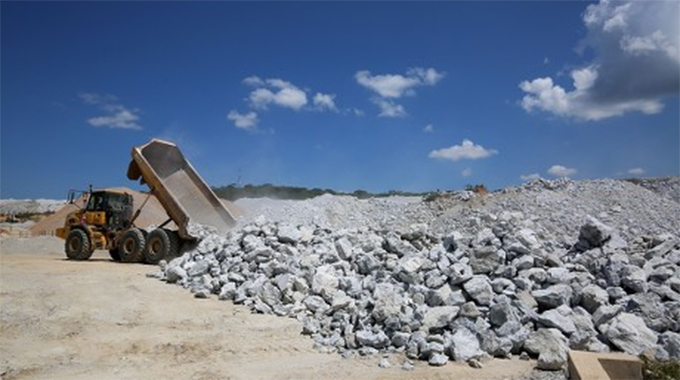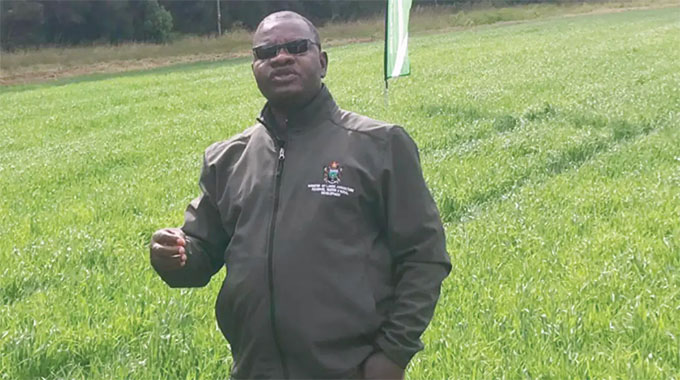Zim becomes lithium giant as Bikita ramps up output

George Maponga–Masvingo Bureau
Zimbabwe continues to consolidate its position as a major lithium producer globally, with Bikita Minerals having ramped up petalite production to 60 000 tonnes annually after a Chinese firm, Sinomine, beginning last year, injected US$200 million to increase output.
Sinomine last year acquired Bikita Minerals and announced a US$300 million investment to hike production and extend the life of the mine in an investment that confirmed Zimbabwe’s growing position as a key source of lithium.
The investment by Sinomine, which saw President Mnangagwa commissioning a spodumene production project at Bikita Minerals last year, dovetails with the Second Republic’s drive to create a US$12 billion mining industry by this year and is also in sync with Vision 2030 which has positioned mining as one of the key pillars to propel the projected upper middle-income society.
With the world gravitating towards clean energy, lithium has been gaining currency globally as a key raw material for making automotive batteries, mobile phone manufacturing and the ceramics industry, resulting in it being dubbed as the “white gold” in some quarters.
Bikita Minerals opened in the pre-independence era and was until recently Zimbabwe’s sole lithium mine.
It’s acquisition by Sinomine last year and subsequent capital investment by the firm has retched petalite output from 36 000 tonnes yearly to 60 000.
Ongoing construction of more petalite processing plants means output can be ramped up further while the building of a spodumene processing plant, also underway, is the jewel on the crown of a game-changing investment that will further stimulate the local economic through creation of both direct and indirect jobs and also earning the country hard currency.
Petalite contains about 4 percent lithium while spodumene rock has a far much higher lithium mineralisation and its processing is at the heart of the huge Sinomine investment.
Bikita Minerals Mine manager Mr David Mwanza told The Herald that petalite output had shot up at Bikita after the Sinomine investment.
“Petalite is the rock that contains around 4 percent lithium,” he said. “This is processed at Bikita (Minerals) and sold when it is bagged. This product (petalite) is used in the glass and ceramic industries to make kitchenware and glass bottles.
“Before acquisition (by Sinomine) we used to sell 36 000 tonnes (petalite) per year after (the coming in of) Sinomine we now produce about 60 000 tonnes per year. Sinomine have invested US$200 million to build new plants to increase petalite production. They are also constructing a plant to process spodumene rock.”
Processing spodumene at Bikita Minerals would even create scope for the mine to consider value adding the product to make automobile batteries, a boon for Zimbabwe in a world that daily grows hungrier for clean energy.
“The current rate of production is a result of the effort used to expand capacity of the existing plant,” said Mr Mwanza. “Beneficiation is already being done at Bikita (Minerals). Petalite makes about 15 percent of glass products and ceramics on the market (globally) today.”
Mr Mwanza disclosed that on top of creating more jobs, almost doubling the previous numbers, the investment by Sinomine had extended Bikita Minerals mine life by over 20 years.
Upon completion of building more petalite and spodumene processing plants, Bikita Minerals will be having more than 1 000 permanent employees.
“At acquisition (by Sinomine last year) we had 360 employees,” said Mr Mwanza. Now we have 574 employees and the numbers are likely to increase as more plants are built and become operational.
“If we look at the construction workers building the new plants and add them up (with our direct employees) we have a total of 1 800 people at the mine (at the moment).”
The new investment by Sinomine has also engendered positive spin-offs for the local community, with the Chinese firm drilling boreholes and building schools as part of its corporate social responsibility drive.
“Bikita (Minerals) has always assisted the community whenever the funds permitted,” said Mr Mwanza. “The mine assisted in building a clinic called Shumbaimwe in Chief Marozva’s area. We also sponsored (drilling of) 5 boreholes in the same area at various schools.
“We continue to supply mahewu to the Murangaranga cluster of eight primary schools in the area around the mine and also sponsored the happy readers programme to assist in improving reading skills among children in the same schools.”
Bikita Minerals is also credited for building a state-of-the-art science laboratory at Bikita-Fashu High School, with the mine also equipping the lab after supplying an electricity transformer to the school and another nearby learning institution – Mangondo Secondary School.
Marinda Primary School in neighbouring Chiwara communal lands, Gutu South, was also electrified, benefiting learners and teachers at the institution, while other schools and health facilities had running water connected in a long list of benefits to the local community, thanks to Bikita Minerals Mine.








Comments